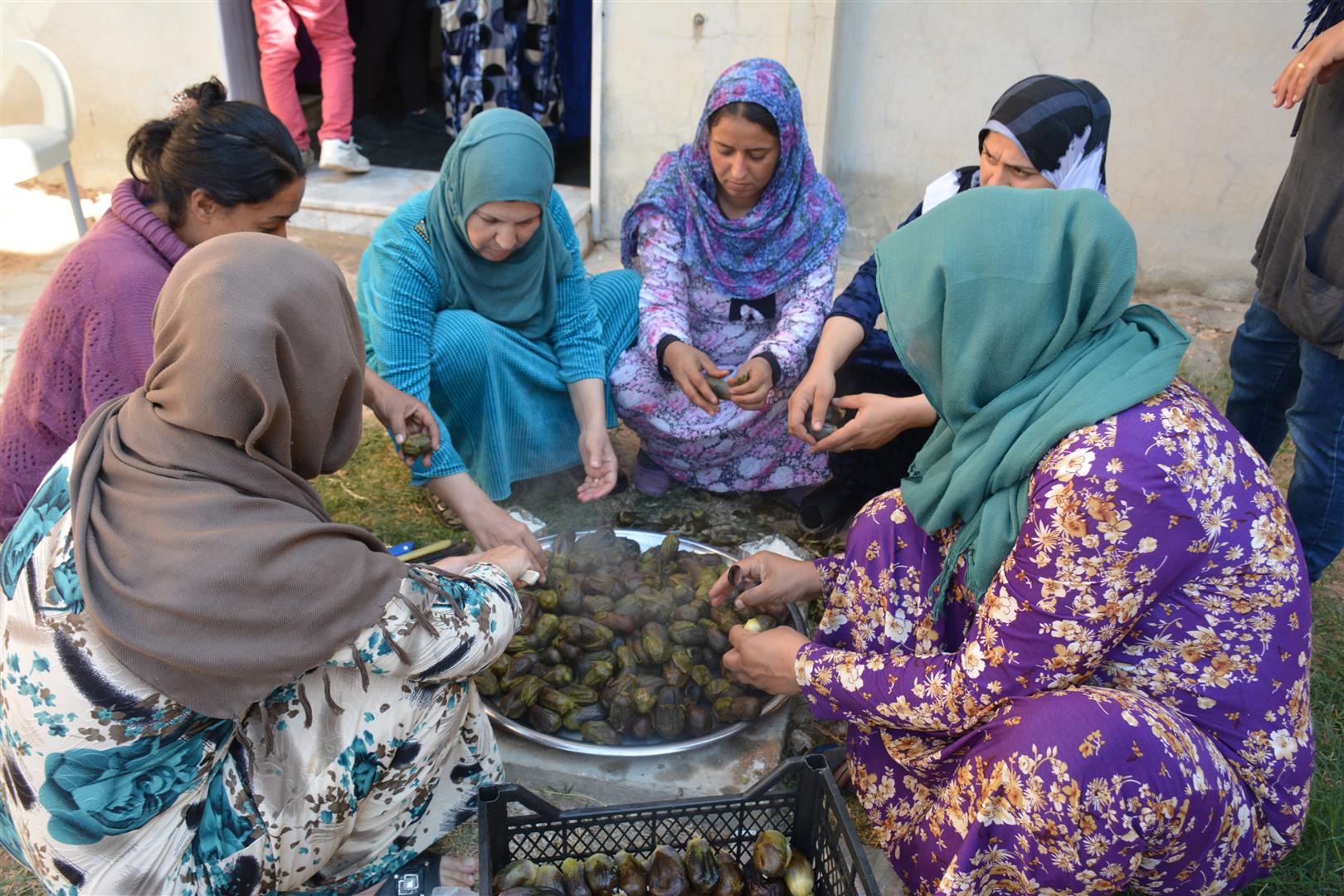A cooperative, or coop, is a business or organisation that is owned and controlled by its members to meet their shared needs. The members can be the workers of a worker coop, people who live in a housing coop, or producers who grow food or produce things together. All members have a say in how the coop is run.
The transition to a cooperative economy has been building slowly since the start of the Rojava Revolution in North and East Syria (NES). Having been built up from nothing, the cooperative economy now makes up over 7% of the economy of Jazira, the largest region, which has over 40 cooperatives.
Women are said to constitute the most active economic subjects in the region through the agricultural coops they established throughout NES. There are a growing number of women’s cooperatives in the region and the income is shared equally among members. Through their agricultural work, across an area of about 1,200 hectares, women contribute to the economy of North and East Syria at a significant level. Women’s coops make up more than 3% of the economy of the Jazira region alone, and women access their products in the bazaars and bakeries opened by the Women’s Economy Committee of Kongra Star.
However, many other forms of solidarity economy models exist outside of cooperatives, and as the aim is to meet the needs of the people while developing a self organised society without a state, not all economic initiatives in NE Syria are set up as cooperatives. There are many other forms of mutual aid and democratic economic projects, and we want to reflect this in the pages and articles of this website.
Coops and other forms of solidarity economy initiatives have also been set up across Bakur, the Kurdish regions of southeastern Turkey, though many of these are currently having to operate underground, any many were closed down as part of ongoing state repression.
We, as part of the cooperative and solidarity economy movements in the countries of Britain, are working to build real solidarity and relationships between cooperative movements both here and in North and East Syria, as well as North Kurdistan / southeast Turkey, where a similar movement, though stifled and heavily oppressed by state forces, continues to grow and resist. We believe that only by developing their economy can this movement survive and thrive, and that we, as fellow co-operators, are well placed to support in this way – movement to movement, and coop to coop.

